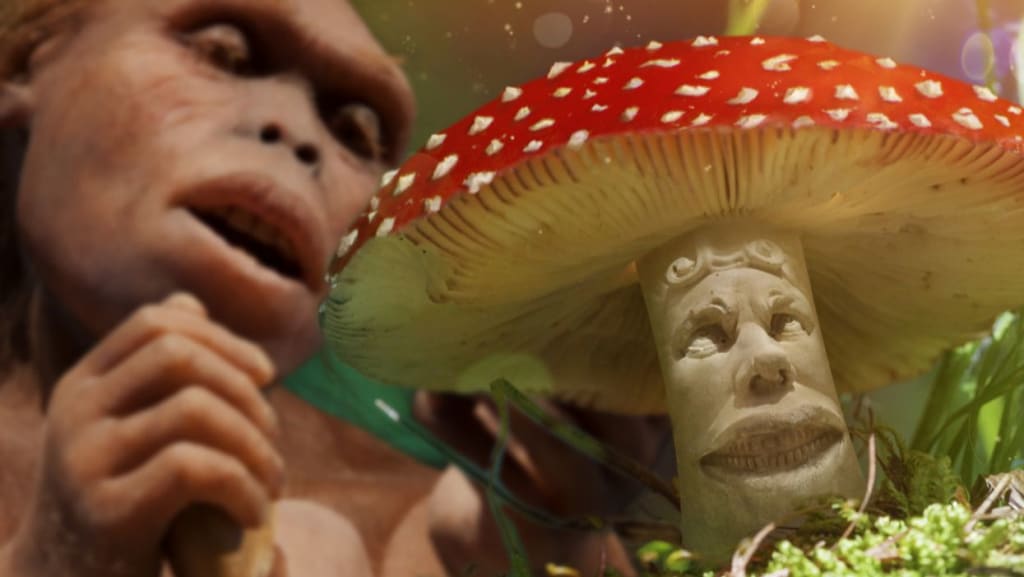The Stoned Ape Theory
Are Homo Sapiens the Descendants of Monkeys on Mushrooms?

Did modern humans evolve from mushroom eating monkeys? The McKenna brothers (Terrance & Dennis) have gained millions of fans while espousing their various views on how psychedelic plants and fungi have shaped the path of humanity. One among those theories is The Stoned Ape Hypothesis, which posits that, groups of primates ingesting mushrooms containing psilocybin, benefited from the synesthetic and empathetic effects afforded to those who ingest them. In fact, many people think this may be the reason humans have such advanced speech, imagination, and social networks as compared to other mammals.

You may be asking, “do monkeys really eat mushrooms?” Yes, 23 species of primates (including us) eat mushrooms on a regular or semi-regular basis. So, the chances of one of our primate ancestors eating a psilocybin mushroom are not only possible, but also probable. In fact, it would be odder if our primate ancestors hadn’t ingested this species of mushroom somewhere along the way. What is unique, is that our ancestors didn’t stop at first ingestion. They appear to have ingested them over and over again, allowing for a new way of thinking that altered the landscape of primate history and ultimately led to a big brained, empathic ape known as homo sapiens.

So, is it really possible that eating fungus caused the cognitive revolution and doubled our brain sizes? Well, it’s not a simple yes or no, but in theory, yes, it is a possibility. The changes wouldn’t have happened if the psilocybin mushrooms had been ingested just once, but over time the changes in thought processes and the ability to better communicate and cooperate, may have led to an evolutionary leap in human consciousness.

Here are some ways in which “magic mushrooms” may have changed our ancestors’ lives: First, as mentioned, the abstract and synesthesia-induced thinking that psilocybin allows for, may be responsible for humans developing oral and eventually written forms of language. Second, increased acuity of their surroundings, a state of being more entuned to nature and better equipped to hunt, may have led to the next advances, cooperation (the ability to take down larger animals together) and possibly aided in the development of tools and weapons.

Psilocybin mushrooms are also known to induce empathy when ingested. This means that apes may have all of the sudden felt a more profound kinship and ability to think not just about their feelings and emotions, but to understand and empathize with the feelings and emotions of the others in their band.

It is not only possible, many social scientists, at least one or two ethnobotanists, and some fringe anthropologists say it’s probable. For certain, it is not something to dismiss. The 500+ year history of documented human interaction with sacred mushrooms, may go back even further, some estimate 5000 years and others, as much as 5,000,000 years ago when groups of our hominid ancestors gathered fleshy mushrooms called psilocybe cubensis from the dung of other roaming mammals and ingested it. Did these primitive bands of primates that set out looking for lunch and ended up eating mushrooms containing downloads of cosmic information change the cognitive evolution of an entire species? Many say yes and there’s no conclusive evidence that makes this hypothesis invalid.

So next time you ponder the evolution of our species, don’t stick to the boring narrative of a slow and laborious evolution that happened because of small changes in our environment over millions of years. Imagine a group of brave hearted primates foraging their way through the African savannah, eating mushrooms growing out of other mammal feces, and catapulting into a cosmic consciousness that changed the world forever.





Comments
There are no comments for this story
Be the first to respond and start the conversation.